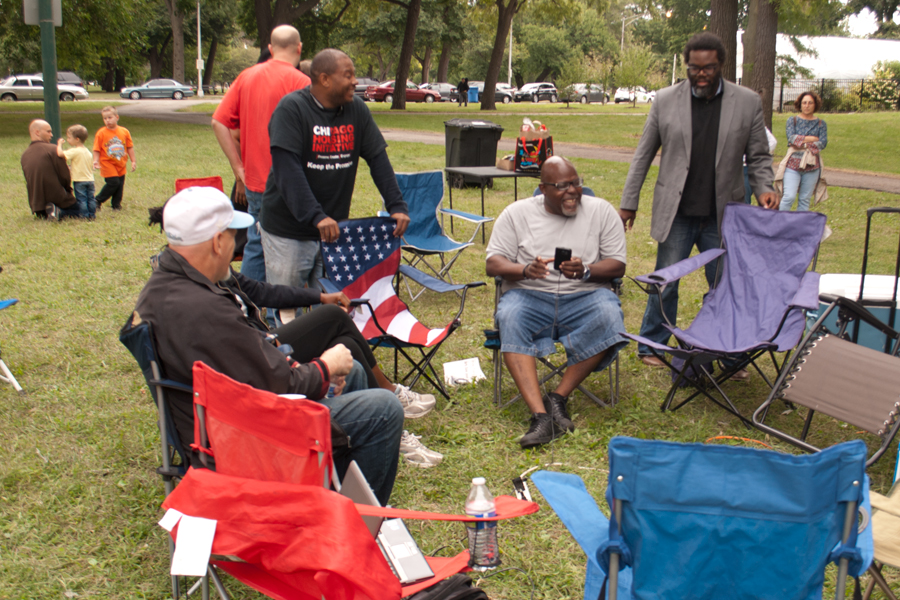This morning, the 12th of their hunger strike, members of the Coalition to Revitalize Dyett High School gathered at City Hall to deliver a letter to Mayor Rahm Emanuel. Emanuel did not show up. Nor did he show up Thursday, when 17 health care professionals delivered their own letter detailing the starvation dangers the strikers faced.
“We delivered letter to mayor’s office,” striker Jitu Brown said via text this afternoon. “[Deputy chief of staff] Ken Bennett received. He would not meet with us. We sat in for 45 minutes. We accomplished our goal and left.”
Brown and 11 other activists haven’t eaten since last Monday. Two, including a grandmother of 14, have been hospitalized.
The coalition wrote the letter in response to Emanuel’s comment on Thursday—his first since the strike began—that the Bronzeville area has plenty of high schools left without Walter H. Dyett High School. CPS had closed the school in June following a three-year phase-out and a final graduating class of 13.
"Within a three-mile radius there's 10 high schools," Emanuel told reporters. "Within about a mile of the school is King College Prep. So there's a lot of high schools in that area, and how do you talk about another one when even some of the high schools that are within the three-mile radius are not at capacity yet?"
Although CPS requested proposals last October to reopen Dyett in 2016, Emanuel’s comments—paired with the district’s rescheduling of an August meeting to discus proposals—have some wondering if it will reopen at all. The 12 strikers say they will not eat until CPS approves their 53-page proposal to transform Dyett into an open-enrollment, science-and-technology-focused institution. They say sending their teenagers to other neighborhoods is not an option.
"In African-American and Latino communities all over the city of Chicago, there is no K-12 vision for education," says Brown, who lives in Austin after having lived in Bronzeville for about 20 years. "Families in Lincoln Park—and when I make this comparison, I make it with all due respect—they know, Kindergarten through 12th grade, what's going to happen with their child. We don't have that system in our neighborhood because we've been disinvested in."
Poor performance was CPS’ stated motivation for closing Dyett: In 2012 only three percent of students met and exceeded reading and math standards on the Prairie State Achievement Exam (PSAE). Just four percent were classified as ready for college coursework.
“I think Rahm and his administration are largely responsible for the violence that has affected African-American communities, because these are the communities where school boundaries are moved,” says Nelson Soza, executive director of the Pilsen Alliance. He says he’s lost 12 pounds during the strike. “They don't care about educating poor kids. You have a pack of wolves, basically, trying to figure out the future of public education."
The protesters have spent the 11 nights sleeping on inflatable mattresses in the cathedral-like hall of the Rainbow PUSH headquarters, four blocks away. By 10 each morning, they’re in folding chairs on Dyett’s lawn, getting by on coconut water, herbal supplements, and guided meditation.
“What else can we do? We’ve done it all,” says Soza. “We’d rather die than keep living in a situation where we have to beg for basic stuff and still not get it.”



